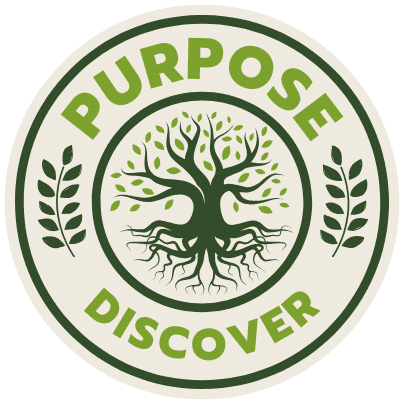There’s something quietly destructive about drifting through life without a clear sense of purpose. It’s not the kind of burnout that slaps you across the face with exhaustion or stress. No, this burnout sneaks up on you like a slow leak in a tire—you keep moving forward, but the ride gets shakier, and eventually, it’s a struggle just to stay upright. Living without purpose isn’t just about feeling lost; it’s about feeling invisible in your own story, a ghost in a world teeming with people who seem to know exactly where they’re headed.
You might wake up, stumble through the motions, check off the daily to-do list, but end the day wondering what it all means. Sound familiar? That’s the silent burnout. It’s not loud or dramatic, but it’s just as lethal as the fiery kind that people often associate with stress and overwork. Living without purpose drains energy in ways that aren’t immediately obvious but are deeply, painfully real.
Why does this happen? Why do so many people feel disconnected from a meaningful purpose?
One answer is that society rarely encourages us to ask the big questions. We’re conditioned to chase success, productivity, and status—external markers that can feel hollow fast. Purpose, on the other hand, often resides in the messy, uncomfortable journey inward. It’s about values, passions, and connection. When those are missing or ignored, burnout starts to creep in under the radar.
There’s also a brutal irony here. We live in an age overflowing with options and information, yet many people feel overwhelmed by the sheer possibility of choice. The pressure to “find your passion” or “discover your calling” can be paralyzing. When none of it lights a fire, it’s easy to slip into a state of numb endurance. This is why so many of us are stuck in that silent burnout—because the answer isn’t out there, it’s inside, but reaching it takes guts.
The Weight of Floating Without Anchor
Imagine being on a boat without a rudder. The water’s calm at first, but eventually, the currents decide your direction. It’s unsettling not to have that internal compass, that sense of “why.” Purpose doesn’t have to be some grand, world-changing mission. It can be as simple as knowing what makes you feel alive, what makes you want to jump out of bed even on the hardest days.
Without it, life becomes a series of checkboxes: work, eat, sleep, repeat. The worst part? That numbing routine feels safe, even if it’s quietly killing your spirit. The silent burnout is a product of this safety net because it’s easier to shut down than to confront the gnawing emptiness. It’s like wearing blinders to dull the sharp edge of existential doubt.
The cost? It’s emotional fatigue, a creeping sense of futility, and sometimes, even depression. Physical symptoms show up too—chronic tiredness, headaches, or unexplained aches. The body and mind are intimately connected, and when your mind is starved for meaning, your body pays the price.
Why Finding Purpose Feels Like a Maze
If your purpose were a neon sign flashing above your head, life would be simpler. But it’s murky and fragmented, often buried beneath layers of fear, doubt, and past disappointments. We’re told, “Just follow your passion,” as if purpose is some straightforward path laid out in neon lights. It isn’t.
Purpose often hides in the small, quiet moments—helping a friend, losing yourself in a book, creating something just for the joy of it. It’s less about a destination and more about the direction. Why does this matter? Because expecting a perfect answer can become its own trap. Sometimes, the search is the point.
What to Do When You’re Burning Out From No Purpose at All
Here’s the good news. You don’t have to spin your wheels endlessly to find your purpose. Recovery starts with peeling back the layers of burnout to see what’s really beneath.
First, stop punishing yourself for feeling lost. It’s a part of the human experience, not a personal failure. Give yourself permission to slow down, to be curious instead of frantic. What parts of your day feel meaningful, even slightly? What are the moments you feel most like yourself? Notice these without judgment.
Try keeping a journal, but not for grand declarations. Write about what moves you, what frustrates you, what small joys you encounter. Over time, patterns emerge—clues to what your purpose might be whispering to you.
Another practical step is to experiment. Purpose isn’t a fixed destination; it’s more like a garden that needs tending. Plant different seeds—volunteer, take a class, try a new hobby, talk to people who inspire you. Even if nothing feels like your “thing” right away, the act of trying opens doors.
And don’t underestimate connection. Purpose often blossoms in relation to others. Sharing your thoughts, struggles, and hopes with people who get it can spark insights and remind you that you’re not alone.
When Purpose is a Lifeline, Not a Luxury
Living without purpose can feel like a slow suffocation, but finding it is deeply freeing. It’s a lifeline that brings clarity and resilience. When you know what matters most to you, it changes how you approach everything else. Work becomes less about survival and more about contribution. Relationships deepen because you understand your own needs and values better.
Purpose isn’t a magic cure-all for life’s hardships. It won’t erase pain or eliminate challenges. But it creates a sense of coherence, a reason to keep moving forward even when things get tough. It’s armor against the silent burnout and a compass through the noise.
If you’re ready to start the journey, there are resources that can offer guidance. Some places help you clarify what matters, what you want to bring into the world, and how to live with more intention. One such resource that’s been helpful for many seekers is a site that digs into the question of purpose with practical tools and no-nonsense advice. You might want to explore insights from this place focused on discovering personal meaning to spark your own path.
Purpose Isn’t a Destination, It’s a Practice
Here’s a truth that many forget: purpose isn’t something you find once and then check off your life list. It’s a practice, a daily choice to align with what matters. That means some days you’ll feel it intensely, other days you won’t. That’s okay. Purpose flexes as you grow, change, and confront new realities.
Instead of chasing a singular “big purpose,” think about cultivating a mosaic of meaning in your life. Different pieces might come from your work, your relationships, your hobbies, or your values. The trick is to keep paying attention, keep showing up for yourself.
Sometimes, it’s about asking bold questions: What if I stopped living on autopilot? What if I allowed myself to care deeply about something again? What if I valued my own time and energy as precious? These aren’t small thoughts. They’re the seeds that can pull you out of that silent burnout groove.
You don’t have to settle for feeling like a ghost in your own life. Purpose isn’t elusive or reserved for a lucky few. It’s waiting for you, in the moments you least expect it, ready to light a fire that can burn brighter than burnout ever could.
If you want to dig deeper into discovering what makes life worth living, you might find some practical and inspiring advice at a dedicated resource about uncovering one’s driving force. It’s a reminder that purpose, while personal, is also universal—an essential thread in the human tapestry.
The silent burnout of living without purpose is real, but it doesn’t have to be permanent. You have the tools, the wisdom, and the capacity to heal. The first step? Give yourself permission to look inward, to question, to explore. The next steps will unfold naturally from there, and suddenly, you’ll realize you’re not just surviving—you’re truly living.

